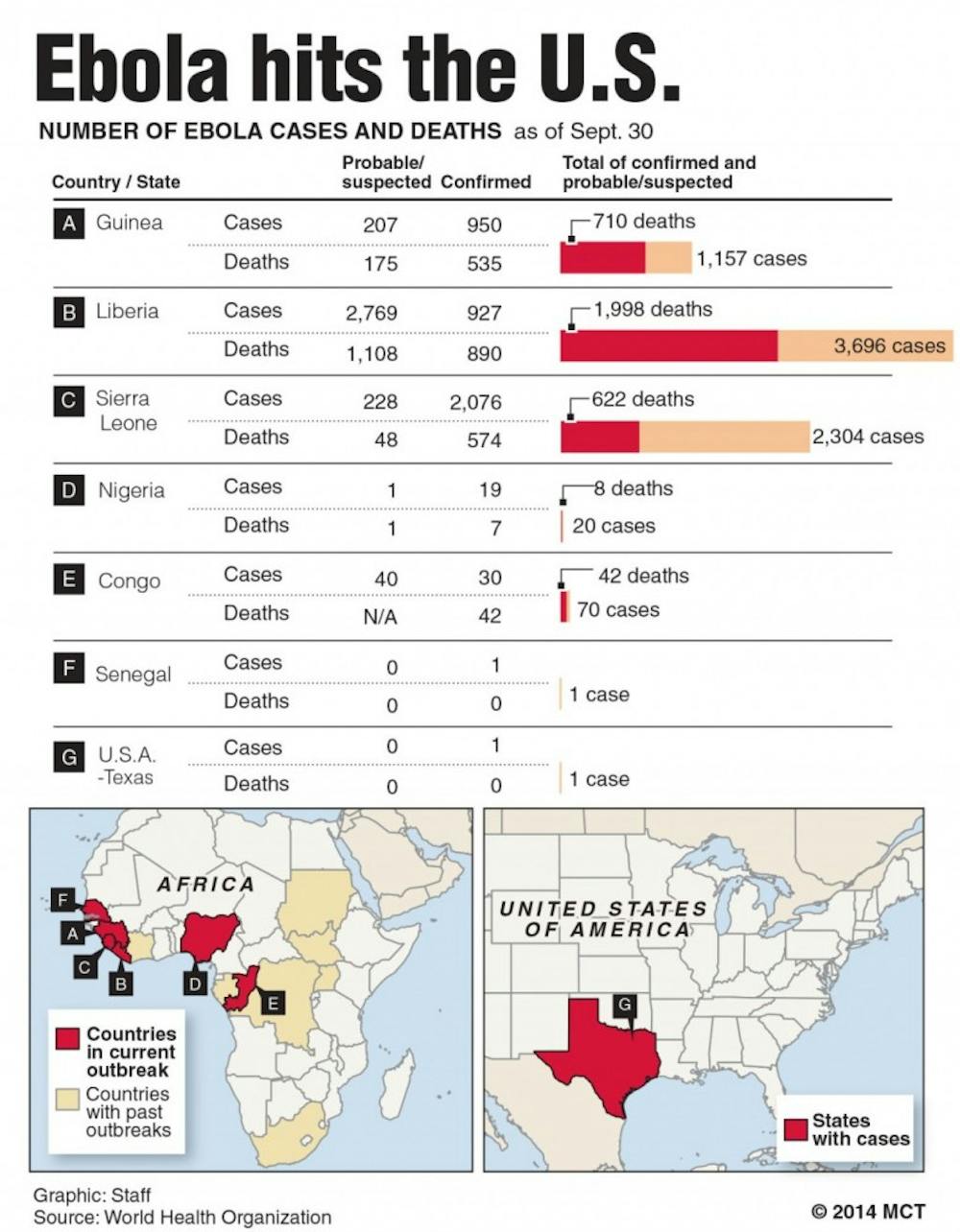The Ebola virus has reached the United States but it may not be as bad as it seems.
Since its initial outbreak in Africa last March, there have been more than 7,000 documented cases of fever caused by the Ebola virus, with 3,349 being classified as fatal. While these numbers are certainly staggering, and the implications are terrible, the virus has always managed to stay localized to Africa, especially in countries like Liberia, Guinea, and Sierra Leone. That is, until now.
The Center for Disease Control and Prevention recently announced the first diagnosis of Ebola had been made in a Dallas hospital. The patient in question is Liberian citizen Thomas Eric Duncan, who flew into Dallas from his home country to visit family members and friends living in the country.
At the time of his departure, Duncan showed no symptoms of Ebola. It was only after a couple days of being in the United States that his sickness became apparent. Currently he is in serious condition at at the Texas Health Presbyterian Hospital at Dallas.
We live in an age where global transportation of various diseases is common. Therefore, it is only natural that Ebola would make across the Atlantic.
It is unfortunate that those most often infected are the selfless missionaries and medical personnel trying to cure the disease in the first place.
For as long as Ebola has been discussed, it’s continually been regarded as a problem specific to the African continent. Perhaps we can use the unfortunate circumstances of Duncan’s case to broaden our perspective on Ebola. This biological threat is no longer just an African problem, but an American one as well. In time, we may even see Ebola evolve into a global pandemic.
Medical professionals within the United States have expressed they are not as familiar with the nature of Ebola, which makes it harder in some ways to treat the disease in America. The government, though, seems confident the Ebola virus can be contained and eradicated.
“The United States has the most capable health infrastructure and the most capable doctors in the world, bar none,” said Chief Homeland Security Adviser Lisa Monaco in a recent briefing, “The United States is prepared to deal with this crisis, both at home and in the region.”
Monaco brings up a good point about how we should view Ebola in the United States — as a problem to take seriously as our own.
Rather than panicking at the smallest hint of adversity, we should consider how we can be a productive part of the solution. We can only do so, though, when we perceive the problem as something that can be solved.


